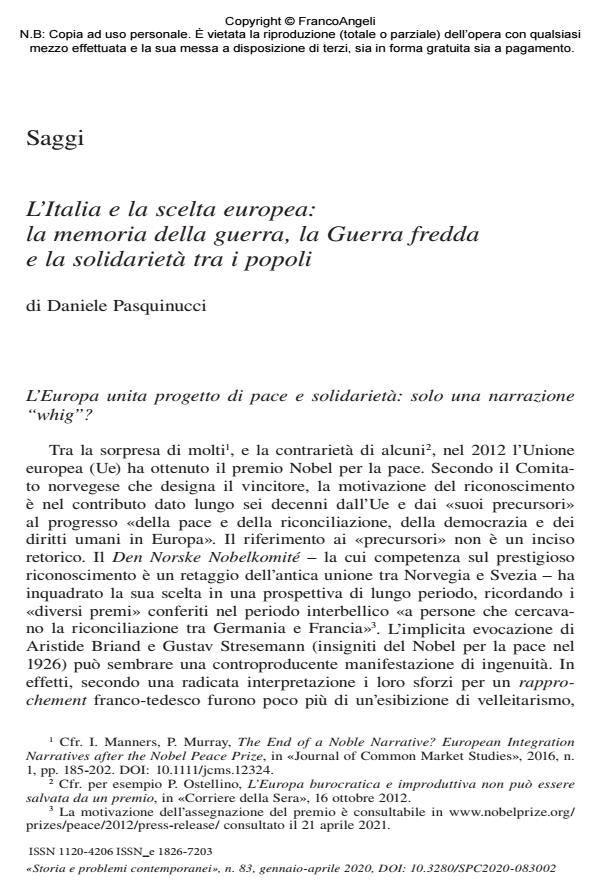L’Italia e la scelta europea: la memoria della guerra, la Guerra fredda e la solidarietà tra i popoli
Titolo Rivista STORIA E PROBLEMI CONTEMPORANEI
Autori/Curatori Daniele Pasquinucci
Anno di pubblicazione 2021 Fascicolo 2020/83
Lingua Italiano Numero pagine 19 P. 15-33 Dimensione file 133 KB
DOI 10.3280/SPC2020-083002
Il DOI è il codice a barre della proprietà intellettuale: per saperne di più
clicca qui
Qui sotto puoi vedere in anteprima la prima pagina di questo articolo.
Se questo articolo ti interessa, lo puoi acquistare (e scaricare in formato pdf) seguendo le facili indicazioni per acquistare il download credit. Acquista Download Credits per scaricare questo Articolo in formato PDF

FrancoAngeli è membro della Publishers International Linking Association, Inc (PILA)associazione indipendente e non profit per facilitare (attraverso i servizi tecnologici implementati da CrossRef.org) l’accesso degli studiosi ai contenuti digitali nelle pubblicazioni professionali e scientifiche
The memory of the world wars played a crucial role in pushing the Italian ruling class to join the first European Communities. The attempt of promoting "solidarity among peoples" was intimately linked to the goal of pacifying the continent. Thus, European unification as an antidote to war became an integral part of the pro-European narrative. Between 1946 and 1953, the international framework, marked by the emergence of East-West tensions, added to the memory of wars the risk of a conflict between the two blocs (particularly after the Korean War of June 1950, a watershed in the history of European integration). The remembrance of the war and the dreaded (new) war fostered an even more intense thematization of "(Western) European solidarity" as a resource for promoting the European integration process and, as we can be read in the Schuman declaration, making war in Europe "unthinkable".
Daniele Pasquinucci, L’Italia e la scelta europea: la memoria della guerra, la Guerra fredda e la solidarietà tra i popoli in "STORIA E PROBLEMI CONTEMPORANEI" 83/2020, pp 15-33, DOI: 10.3280/SPC2020-083002